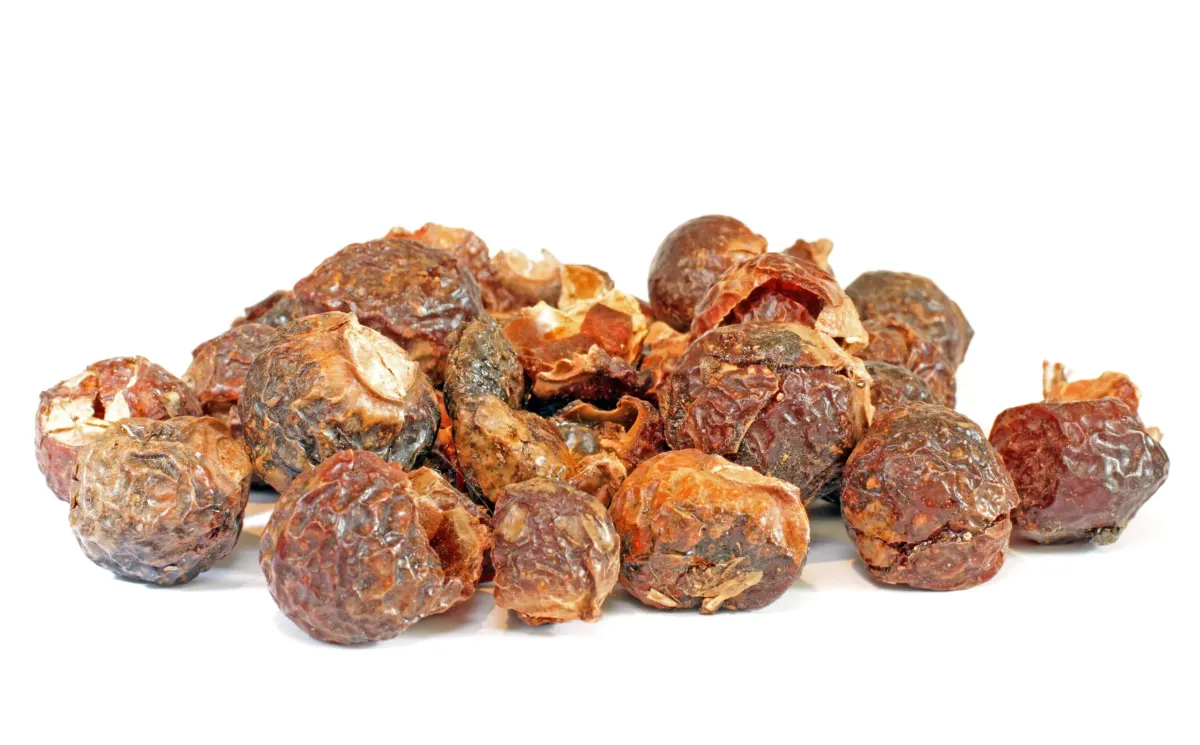
The Eco-Friendly, Budget-Friendly Detergent you'll love: Washberries!
In my journey towards making more healthful changes for my home, one of the biggest challenges was finding a natural soap for our laundry. My search ended when I discovered Washberries, also known as Soap Berries or Soap Nuts.
At first, I was skeptical of their claims to be an organic alternative to regular detergents, but the fact that one box of washberries lasts up to 300 loads and costs less than a regular bottle of liquid laundry detergent convinced me to give them a try.
Once I received my box of washberries, I immediately washed a load of laundry and was crazy surprised to find my clothes were not only clean but smelled so fresh! As I said, I was skeptical, but after that first load, I was nothing short of relieved. Finally, I found something that is natural, that works, and doesn’t cost a fortune.
Some of the links in this post may be affiliate links, you can read my full disclosure here or look for more information at the bottom of this post.
What are Washberries?
This may be the first time you’ve ever heard of washberries (or soap berries) but they have been staples in Indian homes for ages. Washberries are the dried shells (husks) of nuts from the Sapindus Mukorossi tree and get their name from the natural surfactant they produce.
When soaked in water, the washberries release Saponin which serves as a liquid soap that is safe, gentle, and cost-effective, making them an excellent choice for those looking for a natural and effective laundry detergent like I was. I can’t tell you how happy I was to find something that is both safe for my daughter’s skin AND cost-effective.
And, they work great for washing your produce, too!
How to Use Washberries
Using washberries is super simple. Each box comes with two drawstring wash bags. If you misplace yours, any nut bag or muslin bag will work. Add 4-6 washberries into the cloth bag and toss it into the washing machine with your dirty clothes. Start the load and let the washberries do their magic.
You don’t even need to take it out for the rinse cycle. If you have hard water, you can add borax and white vinegar to each load with your washberries.
When your load is finished, you can empty your washberry bag on a paper towel to dry or throw it in the dryer with your load. Washberries double as a fabric softener, so you’re saving even more money!
Each bag of washberries can last from 4-10 loads, depending on the berry, or whenever they get grey and mushy. When you’re ready for new ones, just add the old ones to your compost pile.
To clean your washberries, soak them in a solution of cool water, salt, and baking soda for 30 minutes. Rinse them in a colander and dry them with a paper towel. Remember to always clean your hands before handling washberries.
Do Washberries Work?
Yes! My hubby is a police officer and if you have never tried to keep a Kevlar vest smelling good, you’ll just have to trust me when I say that that is the ultimate detergent test and they passed with flying colors.
After my first load using washberries, I was eager to see how the clothes smelled. I didn’t know machine-washed clothes could have that fresh off-the-clothesline smell but, guess what? They can when you use washberries! And, they smell fresh all day long, which is a big deal to me since I was tired of my clothes smelling off halfway through the day whenever I use regular detergent.
This is a great plus for those who are sensitive to synthetic fragrances. (Fair warning, if you choose to make the switch, you might find yourself overwhelmed by fragrance the next time you put on clothes washed with regular detergent. Or maybe it’s just me…)
You can also use washberries for pre-soaking if you have heavily soiled clothes or add the watery suds to a spray bottle for stain treatment. In fact, they work great for cleaning just about anything that needs washing, whether it be your car or your hands; some even use it as a body wash. There are so many uses for it.
(It is important to note that washberries have a shelf life, and excess moisture or water can cause mold or spoilage so storing them in a jar or plastic container will keep them dry and lasting longer. If you do not want to use them right away, it is recommended to freeze the berries in an airtight container. )
Are Washberries Better than Detergent?
If you haven’t noticed yet, I really love using washberries but I know they won’t be for everyone. So let me list for you some of the reasons you might or might not want to make the switch.
Pros
First and foremost, this is a natural product that is gentle on sensitive skin and fabrics, making it suitable for everyone.
It’s super easy to use.
Very cost-effective since one box lasts forever.
It is environmentally friendly and can be used in both standard and HE washing machines.
It is hypoallergenic and does not contain synthetic fragrances, making it a safer alternative to laundry pods.
Cons
If yours comes in a box, it may not hold up well. In that case, it would be best to transfer the berries to a container that is more sturdy and reliable. This also ensures the berries stay fresh and contained.
As you use the berries, the husks start to disintegrate and may come out of the bag during the wash. This can lead to the husks getting caught in certain materials. If this becomes a nuisance, I recommend this alternative.
If you enjoy the scent of commercial laundry detergents, you may not like the subtle scent of washberries. However, adding your essential oil of choice could be a solution.
Heavily soiled clothes may require a presoak or additional berries to get them clean. Some people also feel that their whites do not get as clean as they do with commercial detergents, but adding some baking soda to the wash might help with that.
Not all of the berries come whole, but the husks work just as well as the whole berry.
Get Your Washberries Here!
Frequently Asked Questions
How do you properly use washberries for laundry?
To use washberries for laundry, place 4-6 washberries into the cloth bag provided with your purchase, toss it into the washing machine with your dirty clothes and start your load. Washberries are a natural alternative to traditional laundry detergents and can be used for both cold and hot water washes.
What ingredients are found in washberries, and are they safe?
Washberries, also known as soap nuts, are the dried fruit of the Sapindus mukorossi tree. They contain saponins, a natural surfactant that acts as a cleaning agent. Washberries are safe to use and are hypoallergenic, making them a great option for those with sensitive skin.
Can washberries be used for multiple wash cycles?
Yes, washberries can be used for multiple wash cycles, typically up to 4-5 loads. Once the washberries have lost their cleaning power, they can be composted or disposed of in the trash.
What are the benefits of using washberries compared to traditional detergents?
Washberries are a natural, eco-friendly alternative to traditional detergents. They are biodegradable, compostable, and free from harsh chemicals, making them a safer option for both the environment and your health. Additionally, washberries are cost-effective, as they can be used for multiple wash cycles.
How do washberries affect the environment and wastewater?
Washberries have a minimal impact on the environment and wastewater. They are biodegradable and compostable, making them a great option for those looking to reduce their environmental impact. Additionally, washberries do not contain any harmful chemicals that can pollute waterways or harm aquatic life.
Are there any fabrics or materials that should not be washed with washberries?
Washberries are safe to use on most fabrics and materials, including cotton, linen, and synthetic fabrics. However, it is recommended to avoid using washberries on delicate fabrics such as silk or wool, as they may cause damage. It is also important to note that washberries may not be as effective at removing stains as traditional detergents, so pre-treating stains may be necessary.

*As an Amazon Associate, I earn from qualifying purchases, but if I am recommending an item in my post, it is only because I have used it myself or have done enough research on the product to feel it is a good fit for my readers.
Check out other Healthy Alternatives for your family
© 2023 Freedomkit | Powered by Freedomkit.ai

